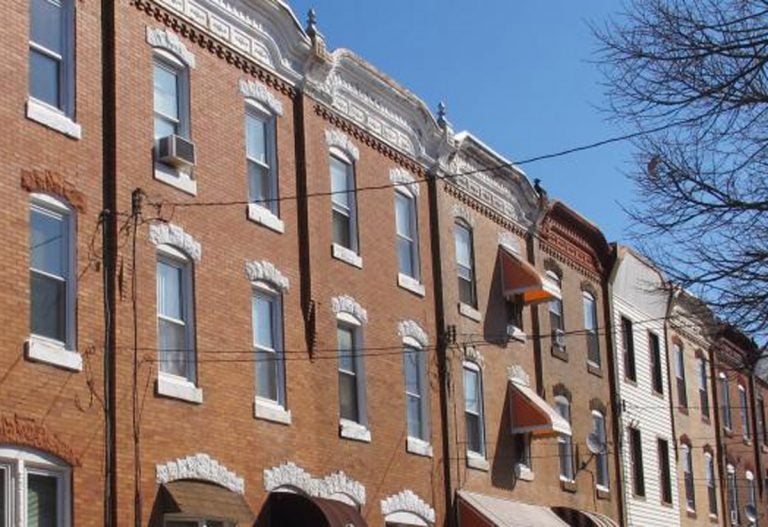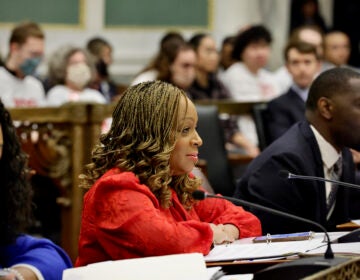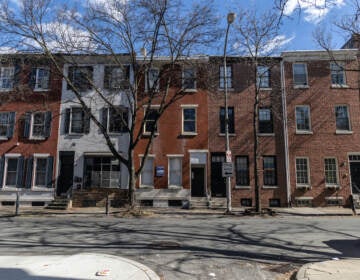A fresh look at the city’s tax-aid programs for its many homeowners
In Philadelphia, fears about development and neighborhood change are often couched in terms of rising home values and increasing property taxes.

(PlanPhilly)
This story originally appeared on PlanPhilly.
—
In Philadelphia, fears about development and neighborhood change are often couched in terms of rising home values and increasing property taxes.
Philadelphia may be the poorest big city in America, but it also has an unusually high percentage of homeowners. Before the Great Recession, more than 60 percent of the city’s households owned the places where they lived. Now, more than 52 percent do, which is still substantially higher than cities as disparate as Seattle, Baltimore, Atlanta, and Chicago.
For low-income homeowners, the sting of added costs is very real. When the Kenney administration’s reassessment sent property-tax bills soaring in some neighborhoods, the political backlash was profound. That pain was a big part of what sunk Mayor Jim Kenney’s ambitious budget proposal to maintain the recent progress, and funding levels, of the Philadelphia School District.
The city’s political class has taken the troubles of low-income homeowners seriously and set programs in place to help them. Earlier this year, researchers at the Federal Reserve Bank of Philadelphia highlighted those programs when they found that few city homeowners were being displaced by reinvestment, or gentrification, in their neighborhoods.
In 2014, PlanPhilly provided a catalog of those programs. In the years since, the suite has grown more robust, serving as a hedge both against the costs of gentrification and the city’s unpredictable reassessments of property values.
Longtime Owner-Occupants Program. Established in 2014, LOOP was the star of the Philadelphia Federal Reserve report. Here’s how it works: If a home’s value increases by over 300 percent during the course of a single tax year, the owner cannot be taxed on the value above that 300 percent mark. For example, if a home’s value shoots up from $100,000 to $340,000, the homeowner won’t have to pay taxes on the $40,000.
To be eligible for the program, the owner of the property must live in the house, have spent 10 years there, and be up to date on property taxes (or be enrolled in an Owner Occupied Payment Agreement). A single-person household can earn up to $91,800 a year and be eligible, while a four-person household can earn up to $131,100.
This year, Councilman Kenyatta Johnson tweaked the policy to scrap a ten-year limit to the program, ensuring that LOOP households will never have to pay more than the cap as long as they remain eligible.
Owner Occupied Payment Agreement. For those who have fallen behind on their property taxes, the Owner-Occupied Payment Agreement (OOPA) gives eligible homeowners an opportunity to enter into a payment plan. Depending on household income, there are different tiers of payment: 10 percent, 8 percent, 5 percent and, thanks to a reform enacted by the city this year, nothing at all. The non-payment agreement is available to households of four earning less than $12,000, or about $27,000 for seniors and the permanently disabled. At the end of the payment plan, interest on the amount owed is waived.
Those enrolled in OOPA must keep up on their current-year tax plans. But this year, the city began allowing those already in the program to pay their contemporary taxes using the same payment method.
In addition, OOPA has been updated to work in concert with Pennsylvania’s property-tax rebate program. Senior citizens can get up to $650 back based on what they pay in real estate taxes, and OOPA has been changed to allow that payment to be based on the payment of back taxes. That allows those homeowners to get money back from the state as they repay their Philadelphia taxes.
A separate hardship payment plan allows seniors and low-income families to pay their real estate taxes in monthly installments. The deadline for application is March.
Homestead Exemption. This type of program is common in many cities as a means to shield homeowners, as opposed to landlords and commercial property owners, from some of the property-tax burden.
The homestead exemption is available to almost all homeowner-occupants in Philadelphia, regardless of age, location, or income. The exemption shaves $40,000 off the assessed value of a house for local real estate tax purposes. If a home is worth $150,000, the owner pays local property taxes on just $110,000.
The only homeowners who don’t qualify are those already eligible for the 10-year property-tax rebate on new construction. Kenney proposed increasing the exemption from $30,000 to $40,000 this year as a means to cushion the blow of his proposed property-tax increase. The tax hike didn’t pass; the bump in the homestead exemption did.
Low-Income Senior Citizen Tax Freeze. This program allows the city to freeze the property-tax bill of homeowners over the age of 65 (or widows aged 50 and above whose spouse was 65 or older). Whatever amount they have been paying, they will continue to pay; if the tax bill goes down, the lower amount can be locked in. The program is open only to those who earn below $23,500 a year, or $31,500 or less for a married couple. The deadline for application is Sept. 13.
Real Estate Tax Deferral. This program, which remains unchanged, allows an eligible homeowner to put off paying any year-over-year property-tax increase of 15 percent or more until the house is sold. That deferred payment becomes a lien on the house that incurs an interest rate of 2 percent.
There are four tiers to the program, the top being for those households with annual income of $56,770 or above where the tax is over 25 percent of income. The bottom tier is for those households earning $24,329 or less where the tax is more than 5 percent of income.
Property Tax/Rent Rebate Program. This state-run program, paid for by the Pennsylvania Lottery, offers tiered tax or rent relief to those 65 and older, people 50 and older whose eligible spouses have died, and those with disabilities who are 18 or older.
There are four income tiers, the highest being a $250 rebate for those making between $18,001 and $35,000. The lowest is for those earning below $8,000 a year, who can get back $650.
For renters, there are only two tiers: Those who earn less than $8,000 get $650 back; those who earn between $8,000 and $15,000 get $500 back.
WHYY is your source for fact-based, in-depth journalism and information. As a nonprofit organization, we rely on financial support from readers like you. Please give today.







